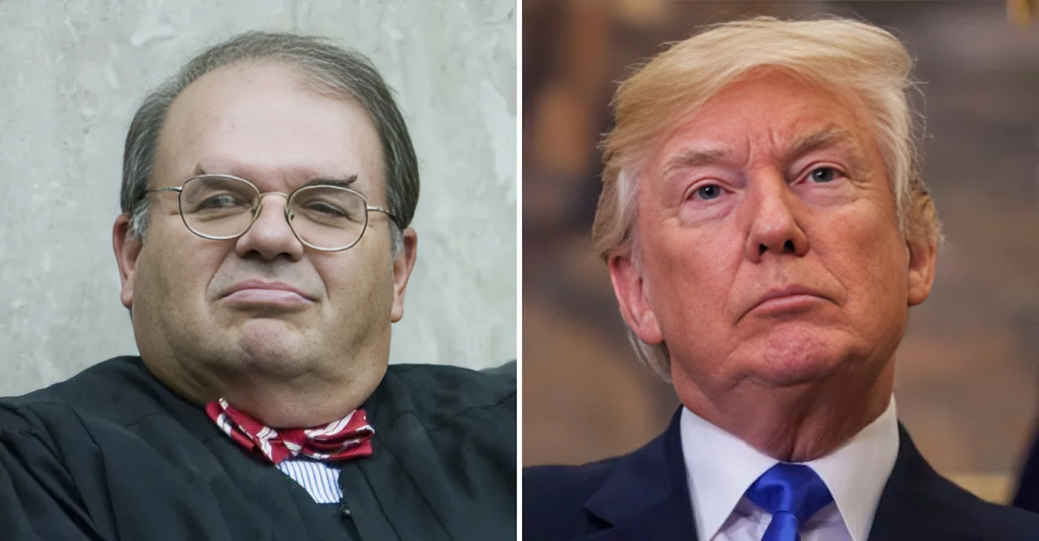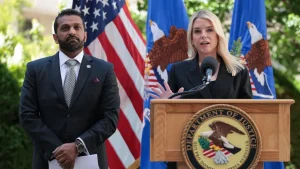A New Legal Clash Over Immigration Enforcement
The immigration fight between the White House and the federal courts intensified Wednesday after a Biden-appointed judge ordered the release of more than 600 individuals detained as part of the Trump administration’s latest enforcement surge. The decision, handed down by U.S. District Judge Jeffrey Cummings, represents a major setback for federal officials who have been ramping up operations aimed at locating, detaining, and removing illegal aliens across the Midwest.
Judge Cummings sided with attorneys from the National Immigrant Justice Center and the ACLU, who argued that more than 3,000 people were arrested between June and October during “Operation Midway Blitz.” They claim federal agents violated a prior settlement that restricted warrantless arrests in the Chicago region.
Under the ruling, 615 detainees must be granted bond by noon on November 21 — a logistical challenge, as many have already been transferred to different states.
Advocates Claim Widespread Wrongdoing by ICE
Mark Fleming, an attorney involved in the lawsuit, said many of those arrested are now scattered across the country. According to Fleming, lawyers believe more than a third of the detainees have already left the United States voluntarily, saying they “gave up” on fighting their cases.
The advocacy groups argue that ICE and senior Border Patrol officials repeatedly ignored the legal limits set in a 2022 settlement. Fleming accused the administration of relying on tactics that were “unlawful in the vast majority of arrests.”
A statement released by the National Immigrant Justice Center said all of the affected individuals were arrested in or around Chicago between June 11 and October 7. Attorneys argue the arrests ranged from traffic stops to workplace raids, as well as operations conducted outside courthouse hearings.
DHS Pushes Back, Warning of Public Safety Risks
The Department of Homeland Security responded swiftly, accusing the judge of endangering the public. Spokesperson Tricia McLaughlin issued a sharply worded statement warning that the ruling would release individuals federal authorities consider risky.
“At every turn, activist judges, sanctuary politicians, and violent rioters have tried to block our efforts to remove the worst of the worst,” McLaughlin said. “Now an ACTIVIST JUDGE is putting Americans directly at risk by ordering 615 illegal aliens back into the community.”
It remains unclear whether the Trump administration will appeal, though senior officials are expected to seek emergency action. Federal attorneys have already requested a temporary stay until next Friday.
A Case That Caught National Attention
One arrest tied to the operation sparked widespread outrage this month. Video captured ICE officers entering a Chicago day care center and detaining teacher Diana Galeano, prompting a wave of criticism from parents, activists, and local officials. Galeano’s case gained more momentum Wednesday when another Biden-appointed judge, Jeremy C. Daniel, ruled that her detention was unlawful and granted her habeas petition.
Her attorney hailed the decision as a major breakthrough. “The Court recognized that Diana and others like her should not be held indefinitely,” lawyer Charlie Wysong said.
The ruling adds another layer of tension to a region already embroiled in debates over federal authority, civil liberties, and local sanctuary policies.
ICE Says Enforcement Will Continue Despite Court Pushback
Despite the legal setbacks, DHS insists it has no plans to scale back federal operations across Chicago. McLaughlin said reports that senior Border Patrol official Gregory Bovino was preparing to leave the area were false. She added that street crime has dropped since “Operation Midway Blitz” began — a point federal officials are eager to highlight.
The administration has repeatedly argued that large-scale enforcement is necessary to address rising criminal activity linked to individuals in the country illegally. Court rulings like Wednesday’s, officials warn, could jeopardize public safety and undermine the broader strategy.
At the same time, immigration activists have framed the ruling as a victory for constitutional rights, saying mass arrests violated long-standing legal protections for both documented and undocumented residents.
As detention centers brace for hundreds of releases and federal lawyers prepare for the next round of appeals, the political and legal battle over immigration enforcement in Illinois is far from over.

James Jenkins is a celebrated Pulitzer Prize-winning author whose work has reshaped the way readers think about social justice and human rights in America. Raised in Atlanta, Georgia, James grew up in a community that instilled in him both resilience and a strong sense of responsibility toward others. After studying political science and creative writing at Howard University, he worked as a journalist covering civil rights issues before dedicating himself fully to fiction. His novels are known for their sharp, empathetic portraits of marginalized communities and for weaving personal stories with broader political realities. Jenkins’s breakout novel, Shadows of Freedom, won national acclaim for its unflinching look at systemic inequality, while his more recent works explore themes of identity, resilience, and the fight for dignity in the face of oppression. Beyond his novels, James is an active public speaker, lecturing at universities and participating in nonprofit initiatives that support literacy and community empowerment. He believes that storytelling is a way to preserve history and inspire change. When not writing, James enjoys jazz music, mentoring young writers, and traveling with his family to explore cultures and stories around the world.









